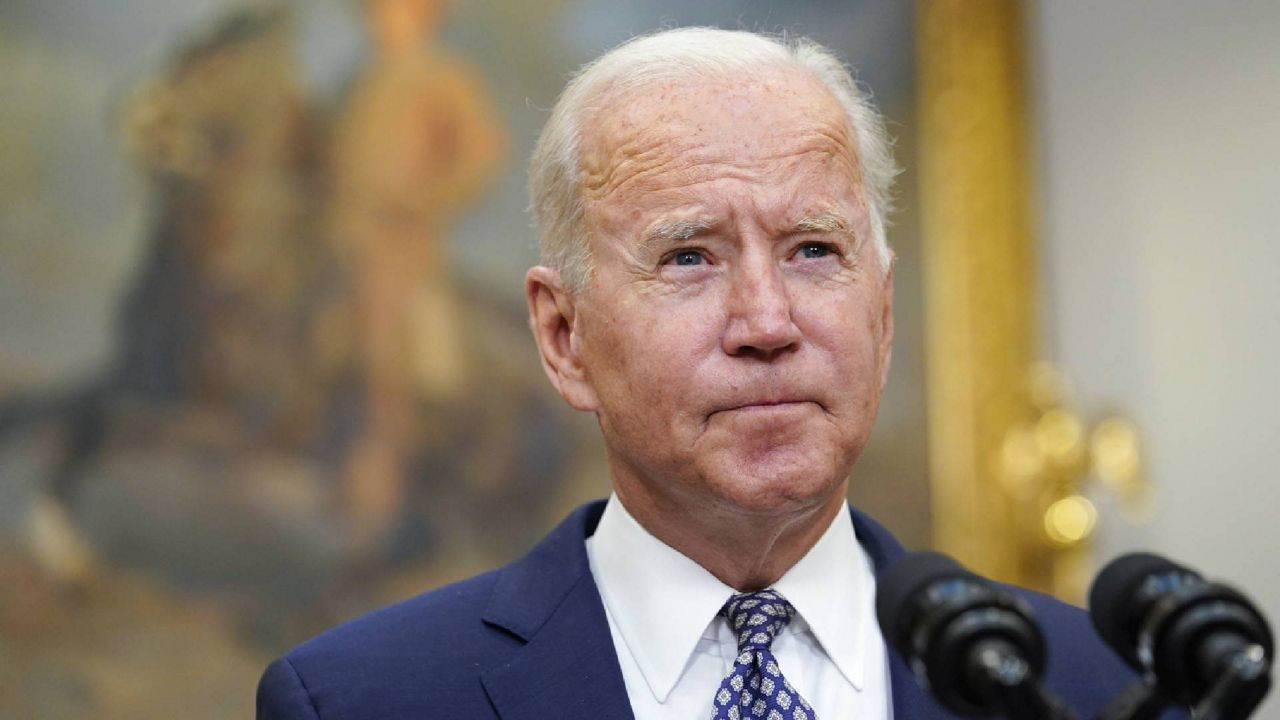President Joe Biden will stick to his self-imposed deadline to withdraw all U.S. troops from Afghanistan by the end of August, the president announced from the White House Tuesday afternoon, though he said he also directed his administration to prepare contingency plans in case of an extension.
What You Need To Know
- President Joe Biden will stick to his self-imposed Aug. 31 deadline to withdraw all U.S. troops from Afghanistan
- From Monday to Tuesday morning, the U.S.had evacuated more than 21,000 people, the highest single-day total yet
- The Aug. 31 deadline means that the final U.S. exit is just one week away, while there are still thousands of people are left to evacuate
- A Taliban spokesperson also said Tuesday that they would no longer allow Afghans to enter the airport in Kabul, a move that could potentially block thousands of allies from evacuating
The Aug. 31 deadline means that the final U.S. exit is now just one week away, while there are still thousands of people left to evacuate, including American citizens and Afghans who assisted the U.S. in the two decade war.
President Biden on Tuesday highlighted the progress made by U.S. forces and diplomats so far, adding that potential security threats were a factor in the decision to keep the deadline.
"We are currently on pace to finish by August the 31st," he said. "The sooner we can finish, the better. Each day of operations brings added risk to our troops."
"I've asked the Pentagon and the State Department for contingency plans to adjust the timetable, should that become necessary," he added, leaving room for an extension of the deadline.
The U.S. evacuated more than 21,000 people from Monday to Tuesday, the highest single day total yet. Another 12,000 were evacuated throughout the day Tuesday, bringing the total to more than 70,000, the president announced. That included around 4,000 Americans and their families, according to a defense official.
But the president was criticized Tuesday for keeping what some called an "arbitrary" deadline, especially with many vulnerable Afghans still unable to get through the airport gates in Kabul, including those who served alongside American soldiers.
President Biden admitted that completion of the evacuation in the coming days would depend on the Taliban "continuing to cooperate and allow access to the airport."
Yet earlier Tuesday, a Taliban spokesperson said that they would no longer allow Afghans to enter the airport in Kabul, a move that could potentially block thousands of allies from leaving.
"We are not in favor of allowing Afghans to leave," Taliban spokesperson Zabihullah Mujahid said, urging Afghan nationals to return home, remain in the country and help rebuild.
The spokesman also said the Taliban would not cooperate after the Aug. 31 deadline.
"They have the opportunity, they have all the resources, they can take all the people that belong to them," Mujahid said of the U.S., "But we are not going to allow Afghans to leave and we will not extend the deadline."
Some Republicans bristled Tuesday at the U.S. seeming to comply with a Taliban edict.
“We need to have the top priority to tell the Taliban that we’re going to get all of our people out, regardless of what timeline was initially set,” said Louisiana Rep. Steve Scalise, the House's minority whip.
Rep. Jason Crow, a Colorado Democrat and an Army veteran who served in Iraq and Afghanistan, also called for an extension of the deadline: "There shouldn’t be a date on the calendar that dictates when the mission ends. The mission should end when our people are out."
The president has promised to relocate all Americans who wish to leave Afghanistan, and he made a similar commitment last week to Afghans who aided the United States efforts, though it's unclear how many will get to leave.
In his speech Tuesday, Biden also outlined his morning meeting with the Group of Seven, some of the United States' core allies.
The president said the groups of leaders discussed the evacuation mission, their humanitarian committment to Afghanistan and Afghan refugees and the need to keep watch on terrorist threats developing in the region and elsewhere.
"We agreed to stay vigilant against terrorist threats that have metastasized around the world," Biden said of the G7 meeting. "All of us agreed today that we're going to stand shoulder-to-shoulder with our closest partners to meet the current challenges that we face in Afghanistan."
Defense officials said earlier Tuesday they were still planning for all possibilities in Afghanistan, including an extension of the deadline, though Pentagon press secretary John Kirby also noted it would take several days to draw down U.S. forces from the country.
White House press secretary Jen Psaki also confirmed that the withdrawal of troops would have to take place before the last day in August, meaning evacuations could stop earlier than the 31st.
The U.S. ramped up its round-the-clock airlift of evacuees from Afghanistan to its highest level yet on Tuesday. About 21,600 people were flown out in the 24-hour period that ended early Tuesday, the White House said. That compares with about 16,000 the previous day.
Thirty-seven U.S. military flights — 32 C-17s and 5 C-130s — carried about 12,700 evacuees. An additional 8,900 people flew out aboard 57 flights by U.S. allies.
The Associated Press contributed to this report.



